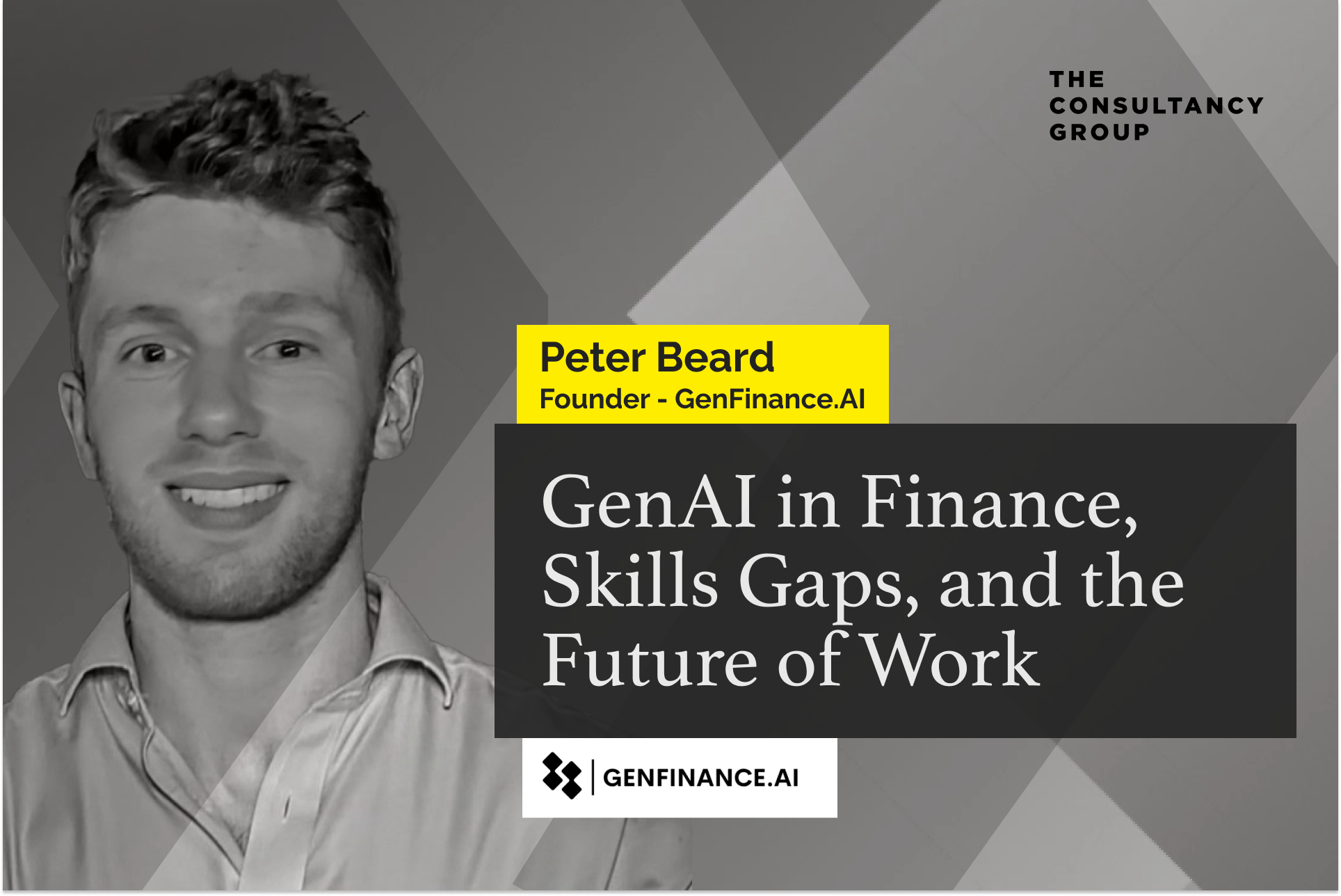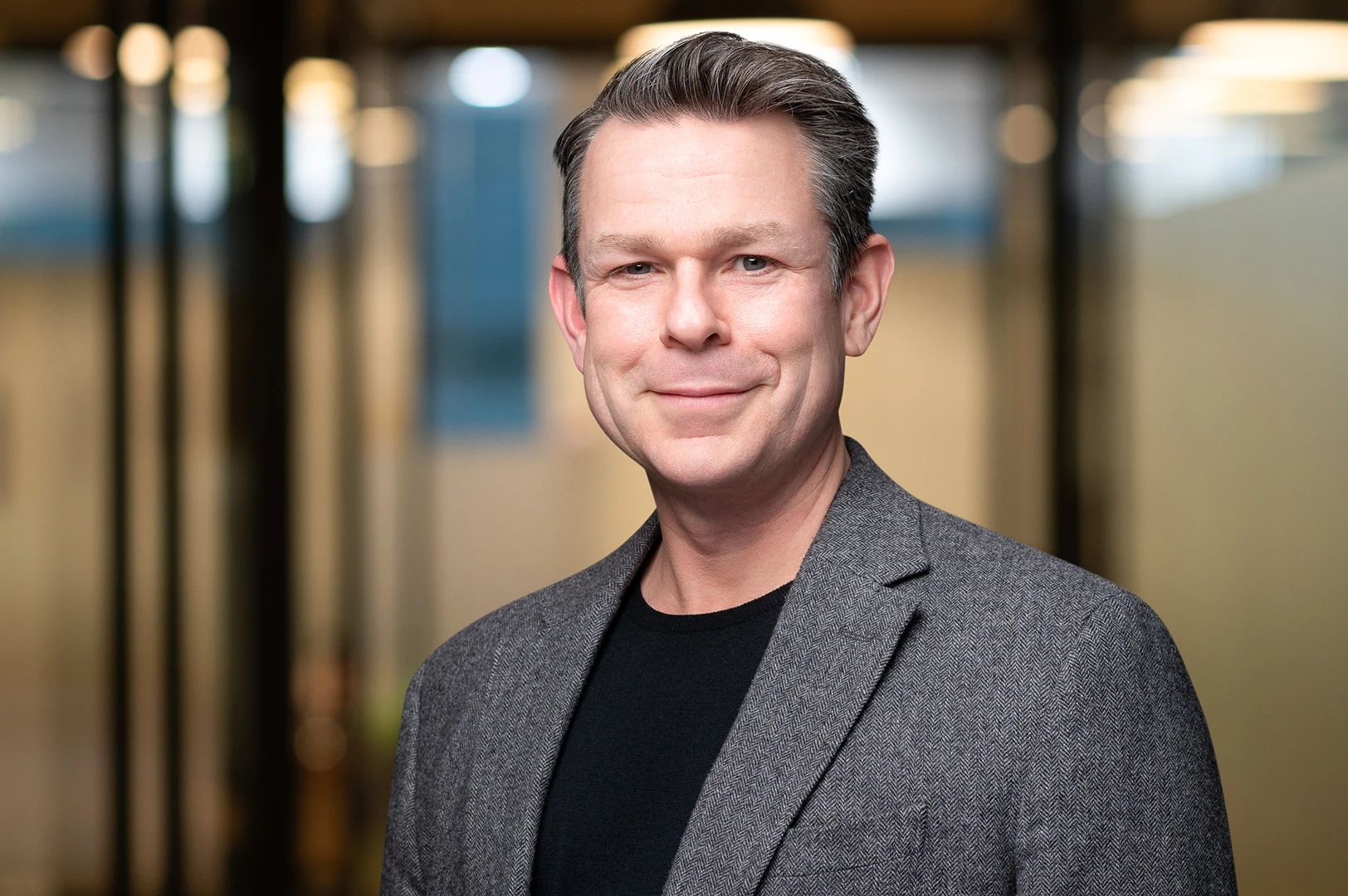

Peter Beard is a qualified accountant who became an AI evangelist after gaining access to ChatGPT just six days after its public launch. With over five years at EY, where he joined the exclusive global AI research group (120 of 400,000 staff), Peter now runs GenFinance.AI, helping CFOs and Finance Directors navigate AI adoption. Recently appointed to ICAEW's Advisory Boards, he combines deep financial expertise with practical AI deployment experience, advocating for immediate adoption as AI capabilities advance exponentially while organisational skills lag behind.
When Peter Beard first encountered generative AI, it was less of a curiosity and more of a turning point.
“I got access to ChatGPT within six days of it going public,” he recalls. “And from there, I became an obsessant user. It was one of those rare ‘aha’ moments, not because it was perfect, but because I could suddenly build things I’d only ever imagined.”
That curiosity evolved into something more: a new mission. As a qualified accountant with a passion for technology, Peter had already spent time in EY’s audit transformation team, helping test emerging tools. But when GenAI arrived, the game changed. He joined EY’s global AI research group, a select team of 120 out of 400,000 staff, and began advising on how to integrate AI across service lines, from audit to tax and M&A.
Today, he runs GenFinance.AI, helping finance leaders understand where to start, how to scale, and how to stay ahead.
Peter’s early frustrations with traditional automation tools were formative. “They could only handle very narrow tasks. As soon as you introduced any nuance, they broke. They didn’t deal with exceptions well, which made them fragile and limited.”
By contrast, GenAI offered flexibility and creative potential. “You no longer needed deep developer skills or a technical co-founder. Ideas trapped in your head could suddenly be built and tested by you. It democratised innovation.”
This, he says, is what makes the shift so profound, especially for functions like finance, where transformation has historically relied on slow-moving ERP upgrades or patchwork integrations.
While AI tools advance at exponential pace, the skills to use them are improving linearly, creating what Peter calls a growing “skills and technical debt.”
“If GenAI progresses 10x, 20x, even 50x in capability, and your team’s adoption is only moving at 2-5 percent a year, the gap compounds. That becomes a real cost, whether in missed opportunity, wasted time, or future remediation.”
He likens the moment to past inflection points like Excel or the move from paper to desktop computing. “Back then, slow adoption carried a cost. This time, the consequences are potentially bigger.”
One of the most striking changes GenAI brings is to the nature of day-to-day finance work. Peter envisions a not-too-distant future where AI agents handle narrow tasks, summarising inboxes, generating draft responses, preparing management accounts, while the finance professional acts as a reviewer, editor, and decision-maker.
“It’s a productivity multiplier,” he says. “You might have ten agents running in the background. You’re overseeing the outputs, giving feedback, and refining. It changes the whole shape of the job.”
This doesn’t mean traditional skills are obsolete. “Business partnering, influence, and context still matter. You still need someone who can make the call. AI enhances that capability. It doesn’t replace it.”
There’s no denying it: team structures will shift.
“In large teams, AI can create theoretical cost savings, freeing up capacity to redeploy elsewhere, or actual cost savings, where you don’t need as many people. It depends on whether you’re prioritising cost, speed, or quality.”
While Peter acknowledges the reality of redundancy risk, he’s quick to note that technology shifts have always created new roles alongside the ones they disrupt. “We’ve seen this with every wave of change in finance. The tools change, the skillsets evolve.”
The challenge is pacing the change and ensuring leadership is proactive, not reactive.
Peter sees junior professionals as the most naturally equipped to adopt GenAI.
“Older generations might have more domain knowledge, but the younger generation are high-usage users. They’re accumulating reps, much like going to the gym. That makes them faster adopters, not because they know more, but because they’re experimenting more.”
There’s no shortcut, he says. “You can’t learn GenAI from a textbook. You have to use it. Play with it. Break it. That’s how you get good.”
For finance leaders under pressure to do something, anything, with AI, Peter’s advice is pragmatic: don’t overcomplicate it.
“Start by figuring out what’s already happening in your team. Are there power users you don’t know about? What are they doing? Then use it yourself. Experience matters.”
Peter recommends exploring the six core GenAI models: OpenAI (ChatGPT), Anthropic (Claude), Google (Gemini), Microsoft (Copilot), Perplexity, and xAI (Grok). Most tools on the market are powered by one of these engines.
“You don’t have to start with integration or APIs. There’s massive value available without writing a line of code.”
In boardrooms, Peter frequently hears the same myths repeated:
“People need to stop seeing GenAI as a monolith. It’s a set of tools. Used well, it’s like having a team of analysts and editors at your fingertips.”
When asked for a fun recommendation, Peter points to There’s an AI for That (theresanaiforthat.com)—a directory of weird and wonderful AI use cases. “There’s everything from avatar generators to haircut recommendations,” he laughs.
But his current go-tos? Grok 4 and Perplexity.
“Grok’s reasoning capability is unmatched right now. It can map out strategic options, weigh trade-offs, and pull live data to help inform direction. Meanwhile, Perplexity’s Labs feature lets you build apps and dashboards directly. It’s a great tool for finance teams.”
For Peter, this isn’t just a technology story. It’s a leadership one.
“Doing nothing is a choice. And in this case, it’s a costly one. The opportunity is here now, before the gap widens too far. Don’t wait for a playbook. Start experimenting, start learning, and start leveraging the tools. Because this is only going in one direction.”
About Peter Beard
Peter Beard is Founder and Director of GenFinance.AI, specialising in AI adoption for finance teams. ACA qualified with over 5 years at EY, he advanced from Assurance Associate to Assistant Manager, leading audits for businesses up to £1.9bn revenue.
Peter joined EY's exclusive global AI research group (120 of 400,000 staff) after gaining early ChatGPT access just six days post-launch. He now helps CFOs and Finance Directors unlock 1,150-2,300+ annual hours through strategic AI implementation.
Recently appointed to ICAEW's Advisory Boards for Audit & Assurance and Members & Commercial, Peter combines deep financial expertise with practical AI deployment. He advocates immediate adoption, emphasizing "doing nothing is a costly choice" as AI capabilities advance exponentially while skills adoption remains linear.




